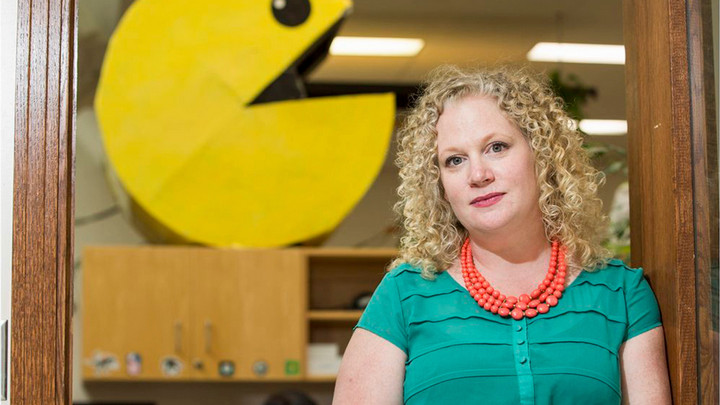It’s all fun and games...until it’s not

Online games are a huge part of peoples’ lives. It’s how people socialize, especially in adolescence. Most people under the age of 55 have always played and aren’t dropping off screen with age.
That’s what drives Regan Mandryk—Canada Research Chair in Digital Games and Immersive Social Technologies—to design, develop and evaluate novel technologies that imrove peoples’ social, cognitive and emotional wellbeing.
“Playing games can have many benefits,” says Mandryk. “It can combat loneliness, increase satisfaction with relationships and improve cognitive and emotional skills. But there are things that thwart the benefits of play—like toxicity, hate and harassment.”
Mandryk pioneered affective physiological evaluation for computer games in research supported by Electronic Arts, a gaming software giant headquartered in California with a development studio in Burnaby. Now, her research explores play that becomes problematic in any number of ways.
A current study with 4,000 young adults in Australia has identified that there are people for whom gaming is a “harmonious passion” with positive outcomes, and others for whom it’s an “obsessive passion” that interferes with daily life. In the latter case, Mandryk has found that gaming isn’t the cause of poor sleep hygiene or substance use, for example, but a symptom, a compensatory response to other issues in the individuals’ lives.
Her next priority is to design interventions to address the underlying problems, like not having the social supports that we humans all need. With funding from a Natural Sciences and Engineering Research Council Discovery Grant, Mandryk had already explored how to harness social play to meet social needs. Now she wants to learn how to predict toxicity, and what factors lead to unhealthy behaviours.
“We think it’s related to self-regulatory behaviours,” she says. “Online disinhibition, behaving differently online than we do in real life, can take the form of being hostile or hurtful in online interactions. As we move into hybrid or virtual reality contexts, it’s important that we don’t transfer the patterns of negative online behaviours too.”
Mandryk has formed industry partnerships on AI in gaming environments with companies like Microsoft Research, and is a member of the recently announced Aspiration Cluster on Socially Engaged Artificial Intelligence and Robotics (seAIR).
“AI is a backbone of predicting toxicity,” she explains.
And from understanding the underpinnings and the negative behaviours themselves, harm prevention is her next aim.
“Technology must benefit humans,” Mandryk says. “If it doesn’t, why have it? It should exist to benefit us, and the planet and the things that live on the planet.”
-30-
Rachel Goldsworthy
